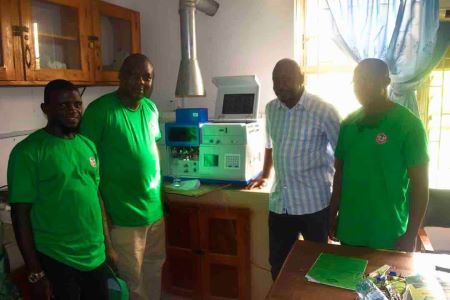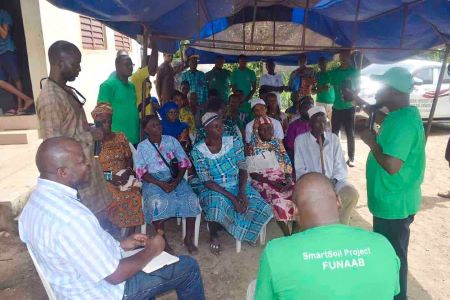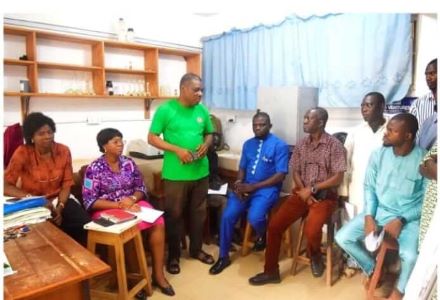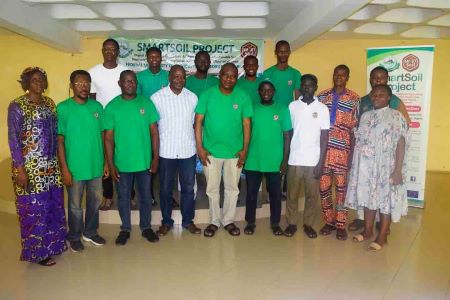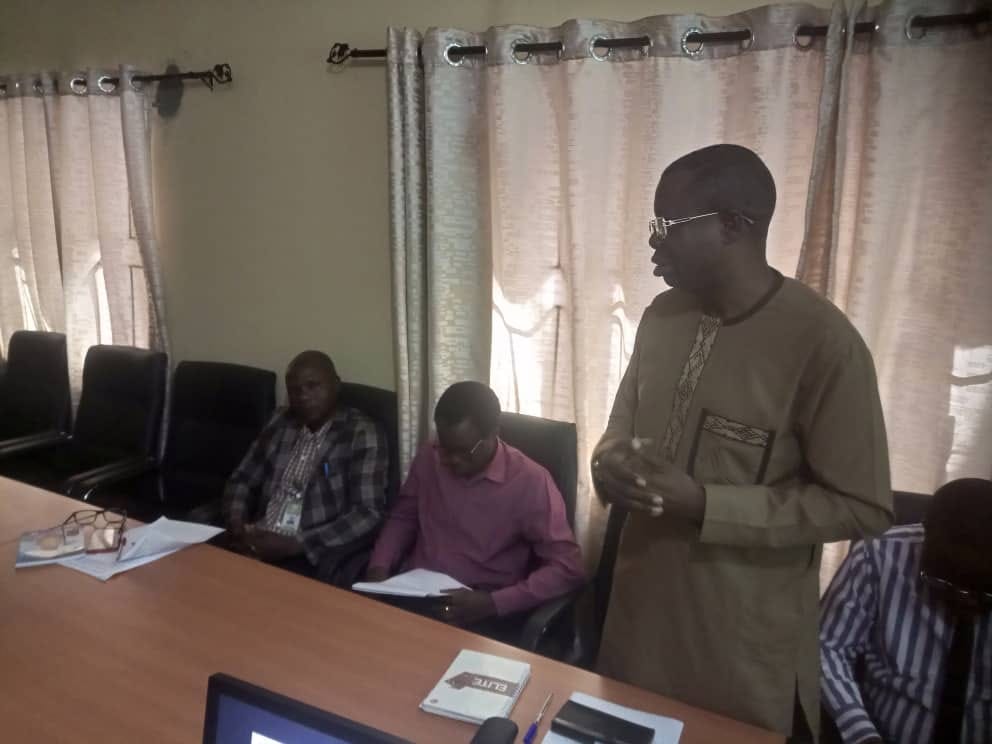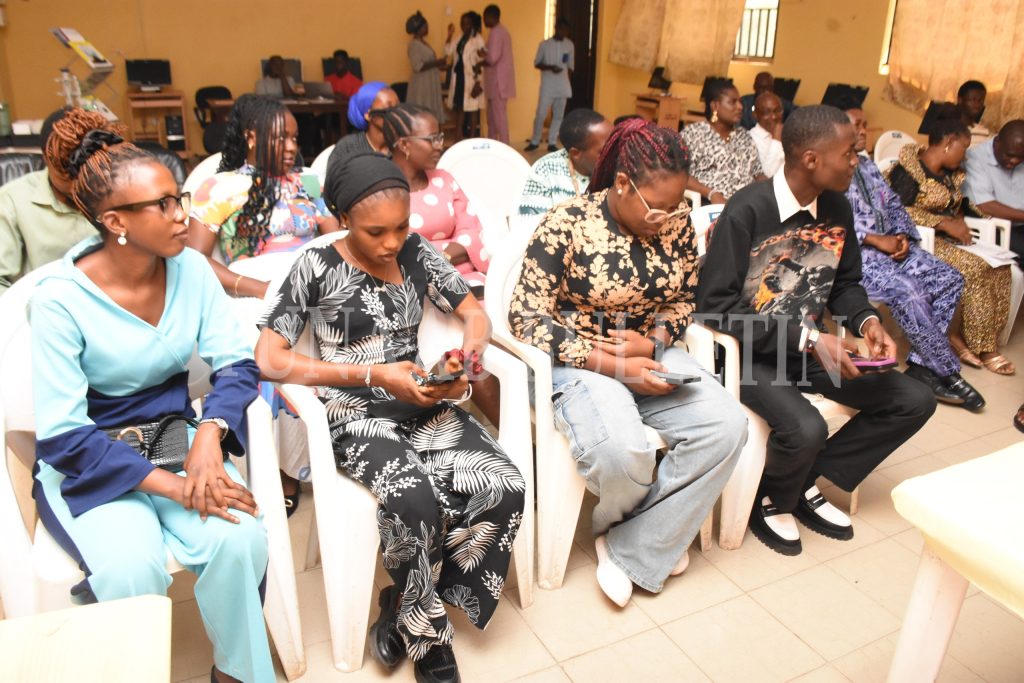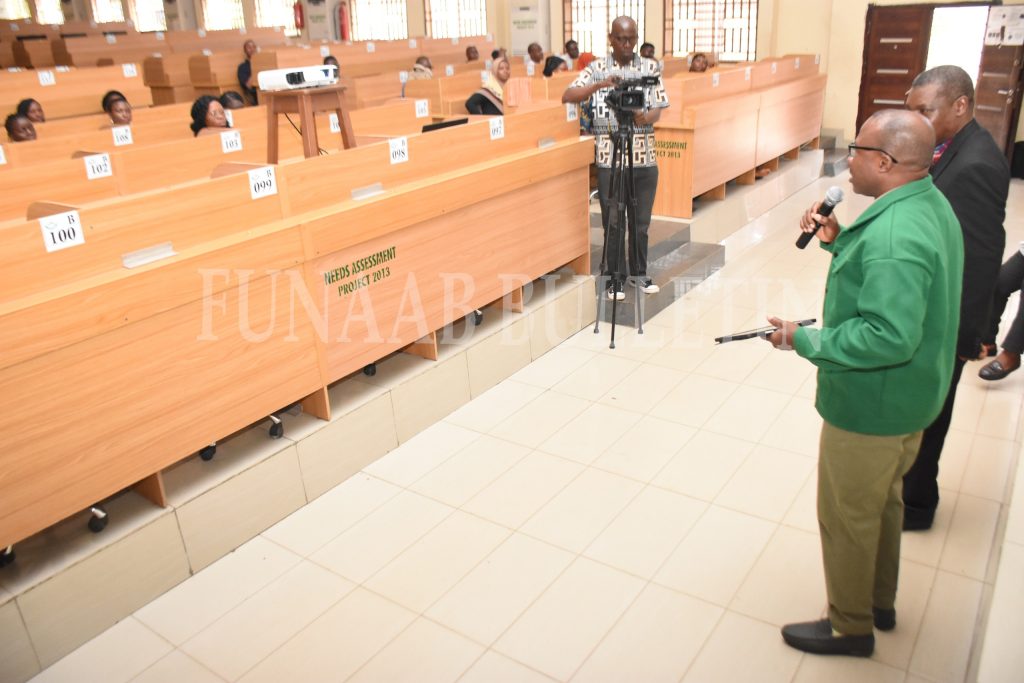Last Updated on November 21, 2023 by Content Editor 1
By Emeka Oluka & Femi Dansu
The Project Leader, “Digital Soil Mapping for Optimal Agricultural Yield and Sustainable Soil Biodiversity Management in Southwest Nigeria using Artificial Intelligence” (Smartsoil Project) of the Federal University of Agriculture, Abeokuta (FUNAAB), Prof. Olusegun Folorunso has presented the Team’s scorecard.
He made the presentation on Saturday, November 18, 2023, to the Monitoring and Evaluation Officer of the Accelerating Inclusive Green Growth through Agri-based Digital Innovation in West Africa (AGriDi), Dr. Michael Kidoido from the International Centre of Insect Physiology and Ecology (icipe), Kenya.
During the presentation at the project office inside the Prof. Oluwafemi Balogun Ceremonial Building, Prof. Folorunso re-emphasised the core of the SmartSoil Project which was to empower farmers and researchers with easy accessibility to soil fertility data thereby boosting food security and improved livelihood for farmers in Southwest Nigeria using latest advances in Artificial Intelligence technology.
According to him, the overall objective of the project is aimed at sustainable soil management for agricultural production in Southwest Nigeria using digital technology.
Speaking on the results obtained so far, Prof. Folorunso informed the gathering that a comprehensive baseline survey was conducted across six states in the Southwest of the country by the SmartSoil project team to know the status of agri-innovation adoption among farmers, extension agents, youth associations, and agro-related women cooperatives.
He also informed all the stakeholders that version one of the SmartSoil App has been completed and is presently under testing among farmers, extension agents, and youth associations, while an article has been published on a systematic review of digital soil mapping in a reputable journal to enhance the project visibility and result dissemination.
He further informed that another paper titled, “Farmers’ Perception and Practice of Soil Fertility Management and Conservation in the era of Digital Soil Information System in Southwest Nigeria” is presently undergoing review and would be published soon. According to him, the project also publishes a monthly newsletter on SmartSoil activities which are shared with project stakeholders.
Prof. Folorunso, however, noted that the project has encountered some challenges among which were limited accurate geo-referenced secondary data; reluctance on the part of research partners to release existing secondary soil data for the project; security of the project team during fieldwork and project funding.
The Project Leader then enumerated the activities that the project team is presently carrying out to enhance project sustainability, while he appealed to the project sponsors for improved financial support.
Highpoint was a brief demonstration of the SmartSoil Application (App) to the guest, Dr. Kidoido, and other participating stakeholders at the event, while the programme climaxed with a field visit to Owe Village, Alabata, Abeokuta for a demonstration of the SmartSoil App in the field.
Also, an interactive session with SmartSoil project beneficiaries and stakeholders, and a physical inspection of SmartSoil assets, including a visit to SmartSoil SoilLab at the Department of Soil Science, FUNAAB, took place.
Present at the event were Prof. Mutiu Busari, a renowned Soil Physicist and Conservation expert and Co-Leader of the SmartSoil project; Mr. Ade Adebayo, SmartSoil Project Manager who presented an active demonstration of the SmartSoil App to the participants, as well as others within and outside of FUNAAB.
Meanwhile, the Smart Soil Project recently organised a training session for academic staff and Laboratory Scientists at FUNAAB, specifically within the College of Plant Science and Crop Production (COLPLANT).
This initiative, known as AGriDi, is a third-party project focused on implementing a modern soil information system for Southwest Nigeria, utilising digital soil mapping and artificial intelligence techniques.
During the training, Prof. Busari noted that the participants were expected to subsequently train others interested in acquiring knowledge of the Atomic Absorption Spectrophotometer (AAS).
Prof. Olusegun Folorunso, the Principal Investigator of the Project, provided a brief overview of the project as he encouraged participants to maximise the training opportunity for personal development and the University’s benefit.
He, therefore, expressed gratitude to the Vice-Chancellor, Prof. Babatunde Kehinde and the donor, AGriDi for their support.

